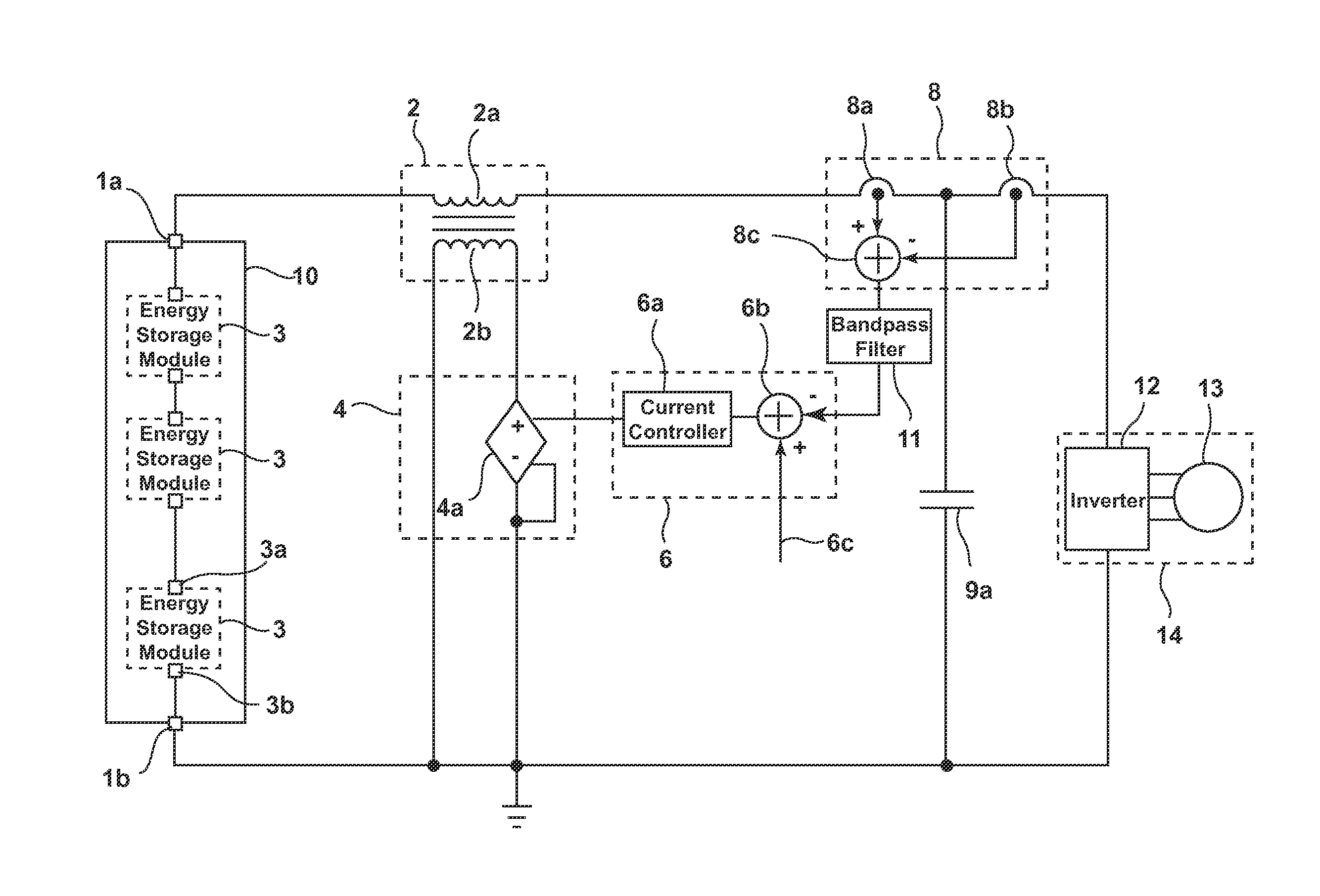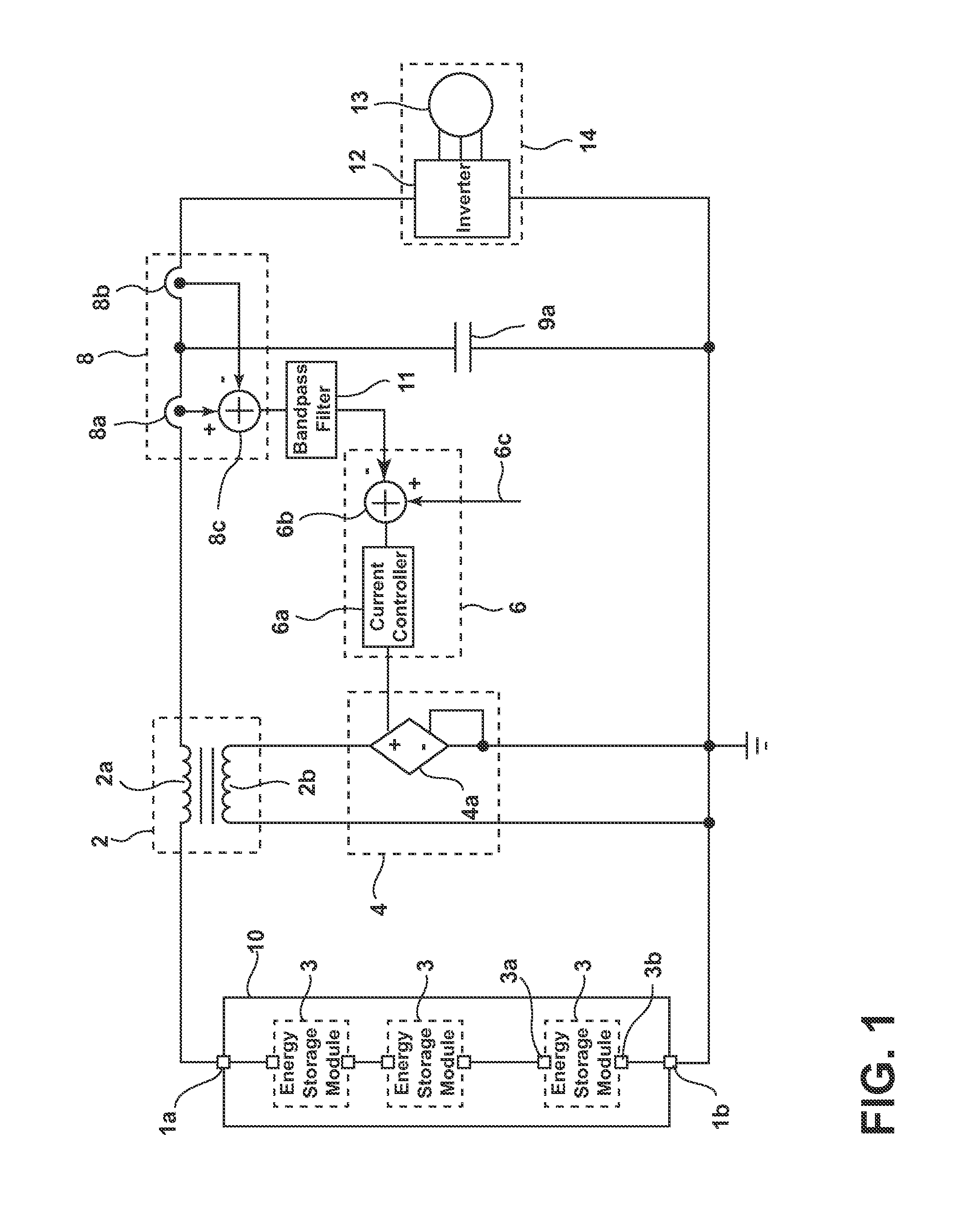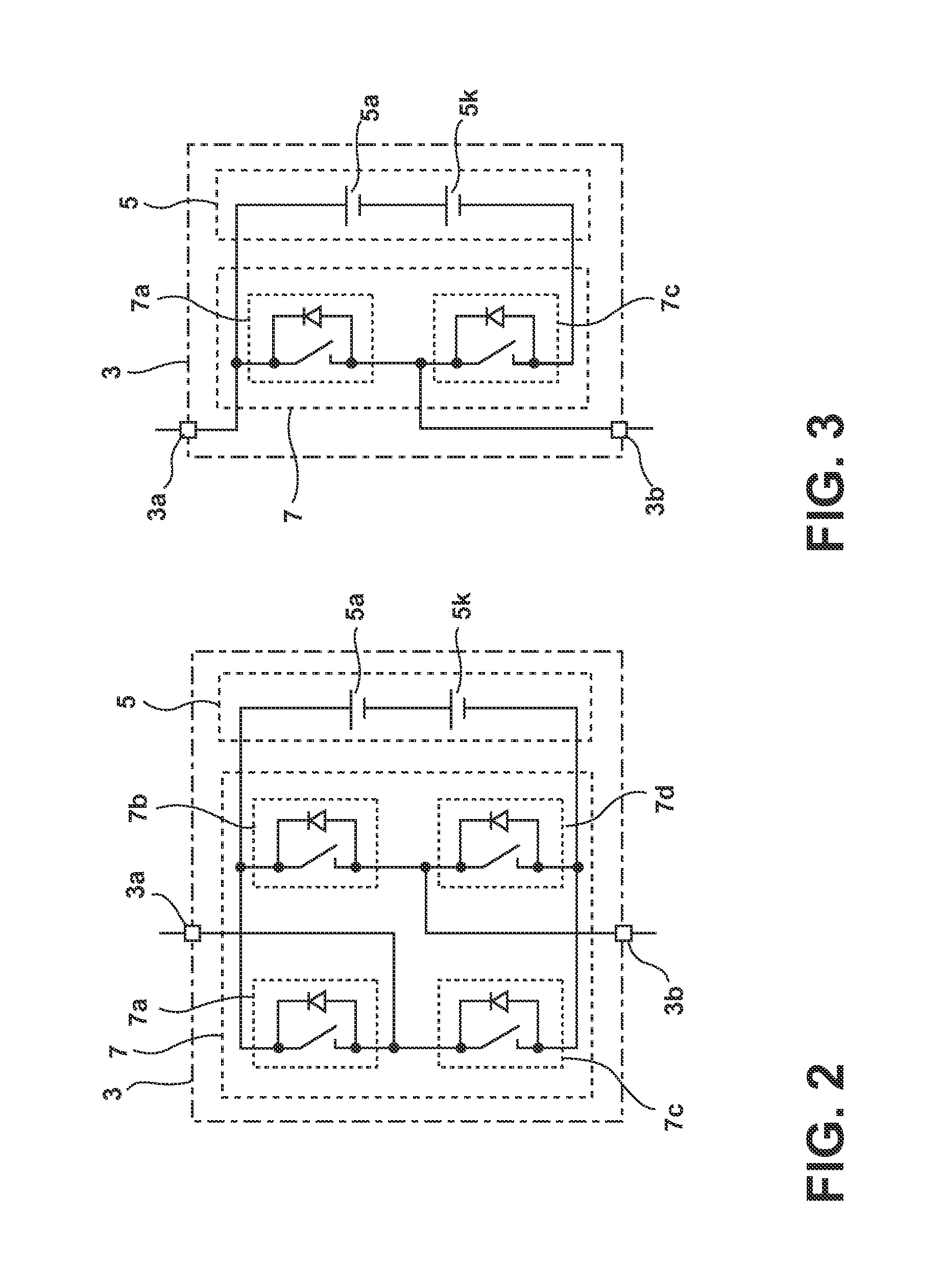Damping circuit for an energy storage device and method for damping oscillations of the output current of an energy storage device
a technology of energy storage device and output current, which is applied in the direction of dynamo-electric converter control, greenhouse gas reduction, battery/fuel cell control arrangement, etc., can solve the problems of reducing the power of the entire energy supply string, the failure of the entire system, so as to reduce the requirement, reduce the complexity, and reduce the cost
- Summary
- Abstract
- Description
- Claims
- Application Information
AI Technical Summary
Benefits of technology
Problems solved by technology
Method used
Image
Examples
Embodiment Construction
[0032]FIG. 1 shows a system which comprises an energy storage device 10 for providing a supply voltage by energy storage modules 3 connected in series in an energy supply string between two output connections 1a, lb of the energy storage device 10. The energy storage device 10 can alternatively also have a plurality of energy supply strings connected in parallel. The energy storage device 10 acts as current source of a variable output current owing to the actuation of the energy storage modules 3.
[0033]The energy storage device 10 can in this case be coupled to an input connection of a DC voltage intermediate circuit 9a via a storage inductance 2a at the output connection 1a of the energy storage device 10. The storage inductance 2a can be implemented, for example, by a concentrated component, such as a current-limiting inductor, or a plurality of distributed components. Alternatively, parasitic inductances of the energy storage device 10 can also be used as storage inductance 2a. B...
PUM
 Login to View More
Login to View More Abstract
Description
Claims
Application Information
 Login to View More
Login to View More - R&D
- Intellectual Property
- Life Sciences
- Materials
- Tech Scout
- Unparalleled Data Quality
- Higher Quality Content
- 60% Fewer Hallucinations
Browse by: Latest US Patents, China's latest patents, Technical Efficacy Thesaurus, Application Domain, Technology Topic, Popular Technical Reports.
© 2025 PatSnap. All rights reserved.Legal|Privacy policy|Modern Slavery Act Transparency Statement|Sitemap|About US| Contact US: help@patsnap.com



